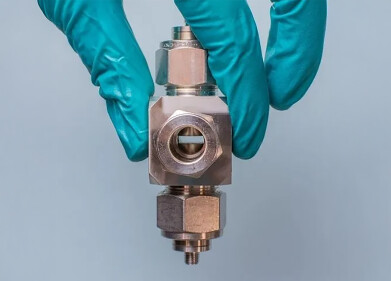Analytical Instrumentation
What Does Glycol Do to Engine Oil?
Oct 11 2019
A recent poll conducted by machinerylubrication.com reveals the extent of glycol contamination in engine oils, with 62% of lubrication professionals saying the organic compound has damaged company equipment. As a common component of water-based antifreeze solutions, glycol can often leak into engine oil and significantly alter the properties of the lubricant, which plays a critical role in running the engine. Common causes of infiltration include cracked manifolds, warped piston heads or in severe cases, a hole or crack in the cylinder wall.
The addition of glycol can cause oil to thicken and as a result, interrupting its flow through the engine. The resulting thick gel that's formed by the addition of glycol is known as 'black mayonnaise' and can cause problems in parts of the engine that require a less viscous lubricant. In serious cases, viscous oil can cause total starvation to some components. As a result, machinerylubrication.com cites glycol contamination as the leading cause of overall poor lubrication in diesel engines.
Fast tracking corrosion and compromising performance of additives
Glycol can also increase the acidity of engine oil which can lead to corrosion, particularly in engines containing copper. Compromised performance of additives is another issue associated with glycol. After glycol contamination, oil continues to flow through the engine and pass through the sump, crankcase and other parts. As oil flows it can clog up filters, reduce flow and eventually, stop the filtration process altogether. This allows damaging particles to remain in the system and disrupt the lubricating film, which can lead to serious damage to engine components
Another issue associated with glycol is the formation of oil balls. While they're small and usually measure around five to 40 microns in size, they are extremely abrasive and can trigger surface erosion in areas like the cylinder walls and narrow passageways.
The good news is, glycol leaks can be prevented by periodic checks of fluid levels. If antifreeze, coolant or other glycol-containing fluids are prematurely running dry, finding and fixing any leaks should be a top priority.
For a closer look at the challenges faced by in-service lubricant testing laboratories, and how an innovative oil analysis methodology is helping to increase profitability and customer satisfaction, don't miss 'Drive Profitability with Novel Methodology for the Determination of Total Organochlorinated Components in Used Engine Oils' which features commentary from Gas Chromatography and Mass Spectrometry expert, Leeman Bennington.
Digital Edition
PIN 25.5 Oct/Nov 2024
November 2024
Analytical Instrumentation - Picturing Viscosity – How Can a Viscometer or a Rheometer Benefit You? - Sustainable Grease Formulations: Evaluating Key Performance Parameters and Testing Method...
View all digital editions
Events
Dec 03 2024 Dusseldorf, Germany
Dec 08 2024 Anaheim, CA, USA
Turkey & Black Sea Oil and Gas
Dec 11 2024 Istanbul, Turkey
Dec 19 2024 Aurangabad, India
Jan 20 2025 San Diego, CA, USA



















